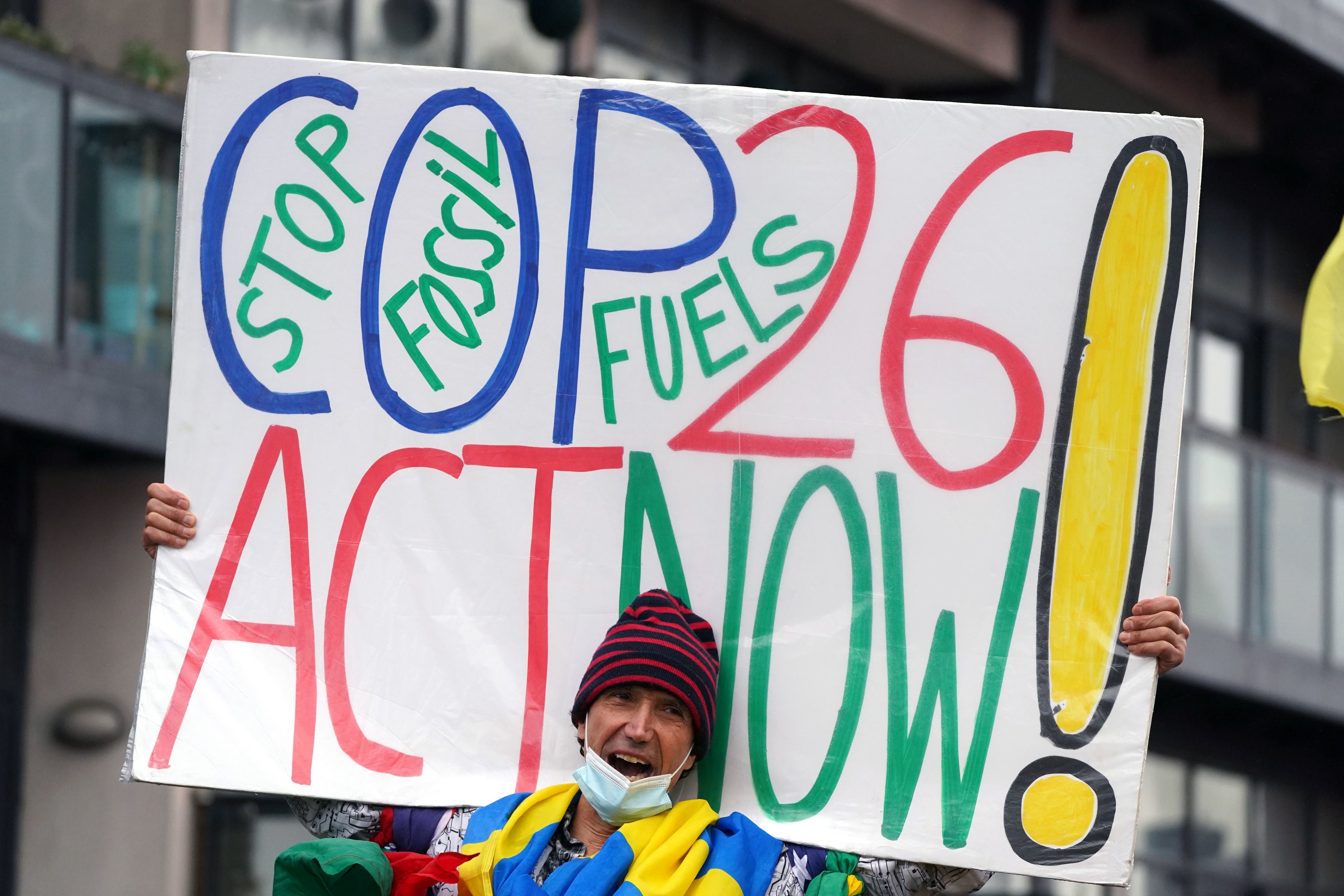Cop26: What is in the latest draft of the Glasgow climate change agreement?
Fears that latest document waters down commitments to phase out coal and cut support for fossil fuels

The United Nations Cop26 summit in Glasgow is seen as humanity’s last best chance of reining in global warming to below 1.5C above pre-industrial levels – viewed by experts as essential to avoid catastrophic climate change.
But as the two-week summit enters its final day, there are fears that the agreement due to be sealed on Friday will not go far enough.
So what is in the latest draft of the proposed agreement, released by the Cop26 presidency led by UK minister Alok Sharma at 7.14am after negotiations lasting late into the night?
• The document voices “alarm and utmost concern” that human activities have already caused around 1.1C of global warming and stresses the urgency of stepping up humanity’s response in “this critical decade” to 2030.
• It reaffirms the goal of the Paris Agreement of 2015 to keep warming “well below” 2C and to pursue efforts to limit it to 1.5C – requiring “rapid, deep, and sustained” reductions of 45 per cent in greenhouse gas emissions by 2030 and net-zero “around mid-century”.
• It calls on the near-200 countries represented at Glasgow to report back on progress towards more ambitious action at next year’s Cop27 summit in Egypt. However, there is no legal requirement on them to act. Instead, they are “requested” to do so, which UN lawyers regard as being stronger than being “urged”, as an earlier draft on Wednesday did.
• The document voices concern that rich world support for developing countries particularly vulnerable to climate change remains “insufficient”. It urges developed countries urgently to scale up their financial and technical support to help poorer states mitigate and adapt, going “significantly” beyond the 2020 target of $100 billion annually – already set to be missed by three years.
• Crucially, the new draft maintains a commitment on fossil fuel use, despite efforts by oil and gas producing countries like Saudi Arabia to remove it from the text. However there are concerns that the promise in an earlier version to “accelerate the phasing out of coal and subsidies for fossil fuel” has been watered down. The text now includes a commitment to accelerate “the phase-out of unabated coal power and of inefficient subsidies for fossil fuels”.
• Nations around the world are also called upon to “rapidly scale up clean power generation”.
• For the first time, the draft calls on states to consider action to cut non-carbon dioxide greenhouse gases, such as methane. This follows the focus on methane in Wednesday’s US/China declaration on bilateral co-operation in the battle against climate change.
• Forests and other natural ecosystems capable of acting as carbon sinks should be “protected, conserved and restored”, the draft says.
• It calls on rich-world nations urgently to scale up financial, technical and capacity-building support for developing countries to deal with the loss and damage done to their societies by rising temperatures.
Join our commenting forum
Join thought-provoking conversations, follow other Independent readers and see their replies
Comments
Bookmark popover
Removed from bookmarks